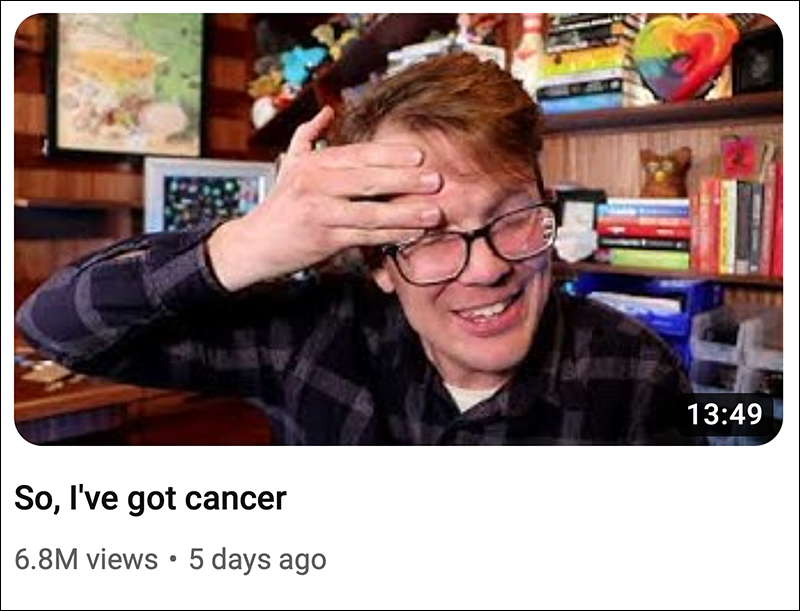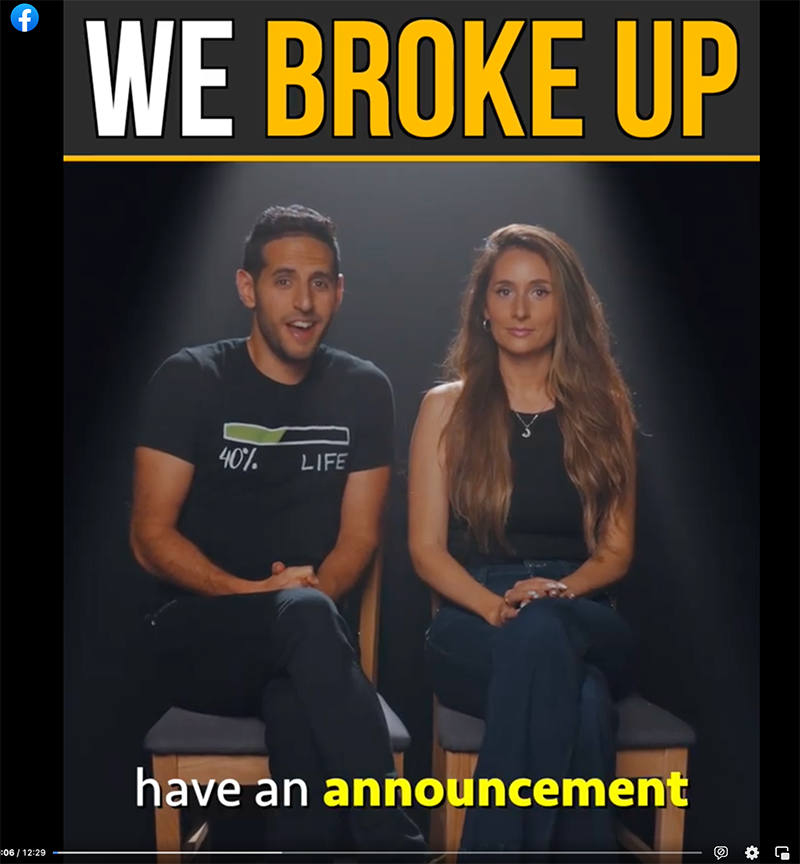If you are a writer, why bother sharing? Why spend your time and energy sharing on social media, starting a newsletter, or vying for attention at all? Many writers have good reasons not to:
“I want people to notice my writing, not me.”
“Social media doesn’t sell books.”
“I want to spend my time writing, not marketing.”
Even beyond these reasons, we can add to that list: sharing is a risk. There are concrete risks, that maybe you’ve read about: a newspaper article about someone who shared something online and got fired from their job, or who were shamed by others. Then there are the other risks: loss of privacy, managing distraction, how it may affect your mental health, and so much else.
None of these arguments to not share are wrong. They are all logical, and often backed up by with compelling statistical and/or anecdotal evidence.
Yet, I find that sharing what we create and why opens up the possibility for so many good things. I believe that sharing deeply matters. Not just for marketing what you create, but for filling your life with moments and experiences with inspiring people, and for ensuring your work has a meaningful impact in the lives of others.
I grew up as an artist and writer, and in some ways, my whole life has been about exploring the question of how we connect what we create to the people who will appreciate it. And how doing so makes our lives better. Today, I want to share some examples of that. Let’s dig in…
When We Share Our Lives, We Impact Others
I went to YouTube earlier this week and saw a video headline and thumbnail that stopped me in my tracks:
This is Hank Green. He is a bestselling author, who does so much else that it’s hard to even describe succinctly. Here is his Wikipedia page. His brother, bestselling author John Green, and he have shared videos back and forth to each other on YouTube since 2007. Their channel has 3.64 million subscribers. Over the years they have shared more than 2,000 videos, accumulating a total of… okay this is a big number… 940,608,988 views. Yep, that is nearly a billion views.
Hank and John are always very positive, and have developed an amazing community. I don’t just mean “followers,” I mean community.
What Hank and John share is sometimes — oftentimes — personal. John has always been incredibly open about his mental health journey, and here Hank is sharing his news of his recent cancer diagnosis and treatment. It would be reasonable for them to not share at all. Or to only share about specific topics, without inserting their own personal experiences into the narrative.
Yet…
I’ve been thinking about Hank all week. Of course, first and foremost I’m starting with empathy for what he and his family and friends are going through. But I’m also considering how Hank has impacted my life. How what he shares has made my life better in so many ways. I’m reading some of the 56,000 comments his video received and considering the myriad of ways he has impacted the lives of so many others. I’m considering how sharing his journey with cancer could possibly help others who are dealing with it, how it could help raise money for cancer research, and so much else. Hank and John have previously raised millions of dollars for charity (full details here), including more than 3 million dollars raised already in 2023.
It’s overwhelming to consider how much Hank has created and shared. But to me, it is a reminder that too often, I don’t share enough. There is more that I could share that would help others. More that I could share that would make someone feel seen, or validated, or provide a solution, or even simply create a meaningful moment in an otherwise stressful day.
If you are a writer, of course, I want you to share so that others can experience what you create. But I think there is more opportunity that that. Not just career or business opportunity, but opportunity for your life to positively affect the life of someone else.
People Resonate With the Person Behind Creative Work
If you have followed my work for awhile, you may know that I have a book called Be the Gateway, that helps you frame what you create as a gateway to ideas and stories that resonate with people. Or maybe you have heard me use the phrase “Human-Centered Marketing” to describe my methodology for helping writers reach their readers.
I know that many writers and creators want their work to speak for itself. They want the entire focus of people’s attention to be on what you create, and never on them. Of course, I respect that, and am a huge believer in having firm boundaries (more on that below.)
But I have always said that one’s platform is about communication and trust. This is different from how many view it, which is often more focused on one’s “Unique value proposition” or their “personal brand.” Bleh.
You are a gateway. And once you consider that, the question becomes… “a gateway to what?” You get to define that.
For years I have followed Nuseir Yassin and Alyne Tamir, two video creators who share on Instagram, Facebook, and TikTok. Nuseir has 21 million followers on Facebook, and Alyne has 2.8 million followers there. They share videos on travel and culture and so much else. For the past 6 years, they have been a couple. Then this week, they announced that they are breaking up. They shared a video explaining it:
This of course, is incredibly personal, yet in the video they share the reasons they are splitting, and even address each other directly in the video. They have been clear about remaining friends, and about supporting each other. But of course, it is clearly a very difficult time for both of them. They didn’t have to share any of this.
Yet, they did.
What you see above is not people oversharing. It is them honoring the level of trust and connection that others feel with them. If you have followed Nuseir or Alyne over the years, chanced are you resonate deeply with them. Not just what they say, but with them as human beings. Them choosing to share in this manner is, to a degree, similar to how one would share with a friend.
They are honoring the communication and trust they have spent years developing.
I am not suggesting that you need to be sharing publicly about your relationships, about your physical health, about your mental health or anything else. I am sharing the stories of Hank, Nuseir, and Alyne because too often we see sharing only as a risk. And while it is, I think it can be more than that.
We resonate with the human-side of what it means to create. The journey, the voice, the thing that makes you unique in all the universe. When you share that story, you are giving people so many more ways to discover and connect with what you create.
Establish Clear Boundaries in What You Share
I am a huge believer in establishing boundaries for what you share. When I’m working with writers, this is always something we discuss and get very specific about. Too many writers and creators feel that if they are going to share on social media, that they have to share about family, or how they spent there day, etc. You don’t.
Establishing boundaries for what you share and how you engage are critical for physical safety, mental, and psychological safety. Be proactive in determining what you will share and why, and then what you won’t share and why.
Having boundaries is the first step. Communicating them is the next. You don’t always have to do this, but I think that there are times it can be very useful and respectful to those you connect with.
For instance, I remember years ago reading about how Neil Gaiman would sometimes go to a cafe to write. But then he said he has this rule: if anyone did anything to acknowledge him, even in a subtle and positive way, he would never return to write at that cafe again. I don’t think he was trying to punish that person or the cafe, but rather, his goal seemed to be to set a boundary to protect himself. Perhaps he knew that if he was acknowledged, that fans would begin camping out there waiting for him to return. Or perhaps this was just his way of trying to have a “normal” existence in public.
If you share, be clear about your boundaries. When possible, communicate them to others.
Why Take the Risk to Share?
When I was active in writing and arts communities back in the 1990s, I noticed that those who showed up and shared their work, tended to be the ones whose work spread. They understood how to talk about their work, because they were often in conversation. That opened up new ways for people to find a connection to it. Even when one piece of work didn’t resonate, oftentimes people supported the writing and art anyway, because they were supporting the writer/artist themselves. Can the art stand alone. Yes! Does it always need to? Maybe not.
But more than that, these writers and artists lived in active creative communities where conversations around, and appreciation of, the arts was a constant in their lives.
And to me, that is a wonderful vibrant way to not only live a good life as a writer, but to develop a career or hobby in the arts.
Why take the risk of sharing? Because so much more is at stake if you don’t share what you create.
Thanks.
-Dan


